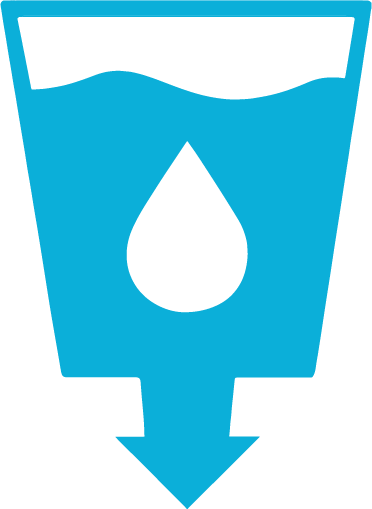The program My First House tem a missão de combater e erradicar a pobreza e a desigualdade, em todas as suas formas e dimensões, ao subsidiar o acesso seguro à moradia digna, para famílias invariavelmente desassistidas de políticas públicas, nas áreas essenciais à vida: habitação, educação, lazer, saúde, segurança e saneamento.
Tem por objetivo promover o desenvolvimento humano e social, a partir da implantação e destinação de habitações unifamiliares de 2 e 3 quartos, centros de educação infantil e ensino fundamental, centros de ensino médio e educação profissional e tecnológica, unidades de saúde e áreas/estruturas de convivência e lazer (parques, praças, academia ao ar livre, quadras de esporte, pistas de caminhada e ciclovias), em regiões com baixo índice de desenvolvimento humano – IDH.
The program My First House transformará a realidade de milhares de vidas, em situação de risco e/ou vulnerabilidade pessoal ou social, pelo acesso à primeira moradia segura e sustentável, com completa infraestrutura e equipamentos urbanos de utilidade pública, de educação, saúde, lazer e similares. Conforme Projeto Executivo, em seus diferenciais, valorizará a qualidade construtiva e a integração de tecnologias verdes.
The program My First House será destinado, inicialmente, para 10.000 famílias à margem da dignidade humana e do bem-estar social, de regiões metropolitanas dos grandes centros urbanos do Brasil.
Para o restante da América do Sul, bem como América Central e o Caribe, África e Ásia, o programa apoiará, inicialmente, 30.000 famílias em países com maior déficit habitacional, pobreza e desigualdade social e/ou urbana nos referidos continentes, consoante análise e avaliação de alcance e impacto social.


7.2 – By 2030, substantially increase the share of renewable energy in the global energy matrix.
6.1 By 2030, achieve universal and equitable access to safe drinking water for all.
6.2 By 2030, achieve access to adequate and equitable sanitation and hygiene for all, and end open defecation, with special attention to the needs of women and girls and those in vulnerable situations.
3.3 By 2030, end the epidemics of AIDS, tuberculosis, malaria and neglected tropical diseases, and combat hepatitis, waterborne diseases, and other communicable diseases.
3.9 By 2030, substantially reduce the number of deaths and illnesses from dangerous chemicals, contamination and pollution of air and water.
1.4 Até 2030, garantir que todos os homens e mulheres, particularmente os pobres e vulneráveis, tenham direitos iguais aos recursos econômicos, bem como o acesso a serviços básicos, propriedade e controle sobre a terra e outras formas de propriedade, herança, recursos naturais, novas tecnologias apropriadas e serviços financeiros, incluindo micro finanças.
1.5 By 2030, build the resilience of the poor and those in vulnerable situations, and reduce their exposure and vulnerability to climate-related extreme events and other economic, social and environmental shocks and disasters.
13.3 Improve education, increase awareness and human and institutional capacity on climate change mitigation, adaptation, impact reduction and early warning.
12.2 By 2030, achieve sustainable management and efficient use of natural resources.
12.8 By 2030, ensure that people everywhere have relevant information and awareness for sustainable development and lifestyles in harmony with nature.
11.1 – By 2030, guarantee everyone’s access to safe, adequate and affordable housing and basic services and upgrade favelas.
11.3 – By 2030, increase inclusive and sustainable urbanization, and capacities for the planning and management of participatory, integrated and sustainable human settlements, in all countries.
11.5 – By 2030, significantly reduce the number of deaths and the number of people affected by disasters and substantially reduce the direct economic losses caused by them in relation to global gross domestic product, including water-related disasters, with a focus on protecting poor and people in vulnerable situations.
11.7 – By 2030, provide universal access to safe, inclusive, accessible and green public spaces, particularly for women and children, elderly people and people with disabilities.
11.a – Support positive economic, social and environmental relations between urban, peri-urban and rural areas, reinforcing national and regional development planning.
11.b – By 2020, substantially increase the number of cities and human settlements by adopting and implementing integrated policies and plans for inclusion, resource efficiency, mitigation and adaptation to climate change, resilience to disasters; and develop and implement, in line with the Sendai Framework for Disaster Risk Reduction 2015-2030, holistic disaster risk management at all levels.
11.c – Support least developed countries, including through technical and financial assistance, for sustainable and resilient construction, using local materials.
10.2 By 2030, empower and promote the social, economic and political inclusion of everyone, regardless of age, gender, disability, race, ethnicity, origin, religion, economic or other condition.
10.3 Ensure equal opportunities and reduce inequalities in outcomes, including through the elimination of discriminatory laws, policies and practices and the promotion of appropriate legislation, policies and actions in this regard.
16.1 Significantly reduce all forms of violence and related mortality rates everywhere.